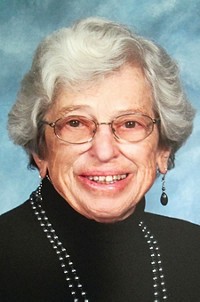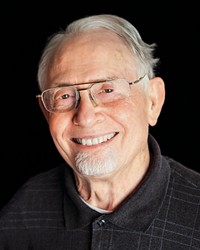Advertisement
Grab your lab coat. Let's get started
Welcome!
Welcome!
Create an account below to get 6 C&EN articles per month, receive newsletters and more - all free.
It seems this is your first time logging in online. Please enter the following information to continue.
As an ACS member you automatically get access to this site. All we need is few more details to create your reading experience.
Not you? Sign in with a different account.
Not you? Sign in with a different account.
ERROR 1
ERROR 1
ERROR 2
ERROR 2
ERROR 2
ERROR 2
ERROR 2
Password and Confirm password must match.
If you have an ACS member number, please enter it here so we can link this account to your membership. (optional)
ERROR 2
ACS values your privacy. By submitting your information, you are gaining access to C&EN and subscribing to our weekly newsletter. We use the information you provide to make your reading experience better, and we will never sell your data to third party members.
People
Keeping A Legacy Alive
by A. Maureen Rouhi,
August 4, 2008
| A version of this story appeared in
Volume 86, Issue 31
My mother, Angelina Ramirez, was a beloved counselor, educator, and mentor. While a professor of psychology at the University of Santo Tomas, in the Philippines, she advised hundreds of graduate students, many of them members of religious orders. Some became temporary members of our family during their most intense periods of writing and preparing for thesis defense.
A few were memorable. Brother Richard, a huge bear of a man, occasionally slept on a small makeshift cot in my mother's home office during the months he was writing his tome. Trained in hypnotism, he hypnotized away my father's debilitating migraine headaches. Mrs. Claire Boaz, from Alabama, spoke so fast and with such a heavy accent that all we Ramirez children could do when listening to her chatter was nod our heads and smile, pretending comprehension. One nun always giggled, and we christened her Sister Tawa, "tawa," being the Tagalog word for chuckle or laughter.
In a career spanning more than 20 years, my mother amassed a huge collection of books, teaching materials, theses and dissertations, and assorted memorabilia from adoring and grateful students. Proud as she was of what each of her 12 children had become, I know that she yearned for one of us to follow in her footsteps, to be the beneficiary and perpetuator of her professional legacy. In this regard, she was like many accomplished professionals, including Traude Sadtler, the last chemist of the Sadtlers of Philadelphia, renowned for collecting and publishing reference spectral data.
The desire to preserve and perpetuate the material evidence of a life and its achievements runs deep but is not always attended to with deliberate consideration. In my mother's case, much of the evidence of her professional stature is gone, except in a Philippine university library where hundreds of theses and dissertations bear witness to it. In Sadtler's case, the legacy of three generations of chemists will be more systematically preserved, as the story on page 43 lays out.
I first learned of Traude Sadtler through letters she sent to C&EN calling attention to the fact that her late husband's grandfather, Samuel P. Sadtler, was a founding member of the American Institute of Chemical Engineers. When I called her to acknowledge the letter, she explained that 2008 is AIChE's centennial and that she had an item dating back to the group's founding, the certificate of membership of the elder Sadtler. I was mesmerized by her voice—the German accent is unmistakable—and by the youthful enthusiasm she exuded as she told me about the Sadtler chemists and the early history of AIChE. I thought she had a story that C&EN could tell. I asked Associate Editor Linda Wang to find out.
Wang admits she was initially unenthusiastic about the assignment. "I didn't know if there was a story," she says. But when she visited Traude in May, the story just naturally unfolded as Traude shared her memories, aided no doubt by mementos decorating her home. Traude was so forthcoming, Wang says, "that I did not need to ask many of the 40 questions I had prepared for the interview."
Traude began working as a spectroscopist at Sadtler Research Laboratories in 1961. By then, the head of the company founded in 1901 by Samuel P. Sadtler was his grandson and namesake, Samuel Philip Sadtler, who went by Philip. Traude and Philip married in 1964 and forged a chemical business partnership that took advantage of Traude's spectroscopy expertise and Philip's business acumen. It was the second marriage for Philip, whose first one bore three children.
Sadly, Philip died in 1996. "Since then, Traude has been on a mission to keep his chemical legacy—and that of his family—alive," Wang writes.
"Philip had wanted his kids to take over the family business," Traude told Wang. "No one was interested in chemistry." What a natural wish of parents, and what a normal reaction from offspring!
When Wang asked Traude whether she was ever disappointed that none of her stepchildren followed in the family's chemical footsteps, she replied, "Why should I be sad? They're married, and they're happy."
Exactly what my mother would have said.
Views expressed on this page are those of the author and not necessarily those of ACS.







Join the conversation
Contact the reporter
Submit a Letter to the Editor for publication
Engage with us on Twitter